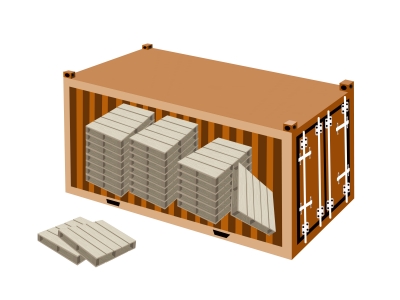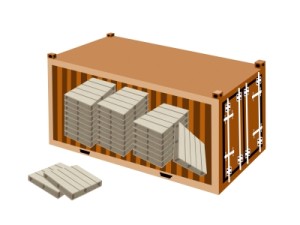

The Bureau of Customs (BOC) is gradually implementing at all ports a 2010 directive requiring the presence of a customs official during stuffing of export shipments, even as exporters are asking for more time to get used to the policy.
Last January 5, BOC began requiring exporters intending to ship out cargo through the Manila International Container Port (MICP) to file a Notice of Stuffing (NOS) before filling their containers. The NOS is pursuant to Customs Memorandum Order No. 22-2010, or the Revised Customs Port Operations Manual, signed by then Customs Commissioner Angelito Alvarez.
The program will be implemented at the Port of Manila beginning January 15.
Exporters expressed surprise over the development, complaining they were not informed of implementation of the four-year-old order.
During a meeting with the Export Development Council-Networking Committee on Trade Policy and Procedure Simplification (EDC-NCTPPS) on January 8, BOC-MICP Customs Container Control Division (CCCD) chief Fidel Villanueva IV said they notified some exporters and customs brokers last year, but admitted not informing EDC or organizations such as the Philippine Exporters Confederation, Inc, the national organization of exporters.
Exporters asked for a moratorium of up to two months so that BOC could prepare the implementing guidelines, but BOC-MICP district collector Elmir Dela Cruz urged them to try out the measure first to check for loopholes.
Dela Cruz said the order is intended to make sure only legitimate products are shipped out of the country, and is also part of the risk management system for exports being developed by the BOC.
He said BOC-MICP will closely coordinate with BOC-Risk Management Office (RMO) to implement a green lane for exporters that will no longer require a BOC official during stuffing. Currently, a super green lane program is being implemented only for big importers.
BOC said the CMO has long been implemented at customs bonded warehouses (CBW) and economic zones, but for some reason has not been applied since 2010 to local exporters or those outside CBWs or economic zones.
BOC clarified that the stuffing inspectors (SIs) should come from the port where the export is intended to be shipped out.
The stuffing steps
Under CMO 22-2010, once the Authority to Load is issued, exporters or customs representatives will forward to the CCCD the export declarations/permits processed at the BOC-Export Division. An NOS will be submitted within 24 hours indicating the kind and quantity of cargo, the container number, the time of stuffing, the address where the stuffing will be done, and the name of the shipper/exporter.
The assigned SI will supervise the stuffing to be conducted in the presence of representatives from all parties. The SI should be there until stuffing is concluded and the doors of the containers are closed, locked, and sealed.
The SI, upon completion of stuffing, will sign the stuffing report/sequence attesting that the cargoes were indeed stuffed inside the container.
However, due to limited personnel, BOC is implementing the order randomly. Exporters who filed their NOS will receive notice immediately if an SI will be provided. If no SI is available, BOC will only stamp the form and add “Shipper’s count and load” according to the current practice. The rest of the usual steps should proceed after this.
BOC said it will allow the Oath of Undertaking to be used by exporters who learned of the implementation only now and have urgent shipments, but they need to comply with the procedures the next time around.
CMO 22-2010 also states that “all incidental expenses (allowance, meal and transportation allowance) attendant to the services rendered by the Stuffing Inspector for the conduct of actual stuffing shall be for the account of the exporter/shipper and/or CY-CFS (container yard/container freight station) operator served.”
BOC said they have asked the Commission on Audit to provide an approved schedule of fees to be given to the inspectors.
On EDC’s comment that government economic managers have earlier agreed exporters should not shoulder costs arising from government programs, BOC officials responded they are only implementing provisions of the CMO.
They added that expenses for SIs could be in kind, such as food, car to ferry the BOC personnel, or a room in the office or factory. If, for instance, an inspector requests for additional allowance, Dela Cruz advised exporters to firmly decline. This should not stop the BOC staff from carrying out his task or causing delays in the proceedings, Dela Cruz said. – Roumina Pablo
Image courtesy of Iamnee at FreeDigitalPhotos.net




